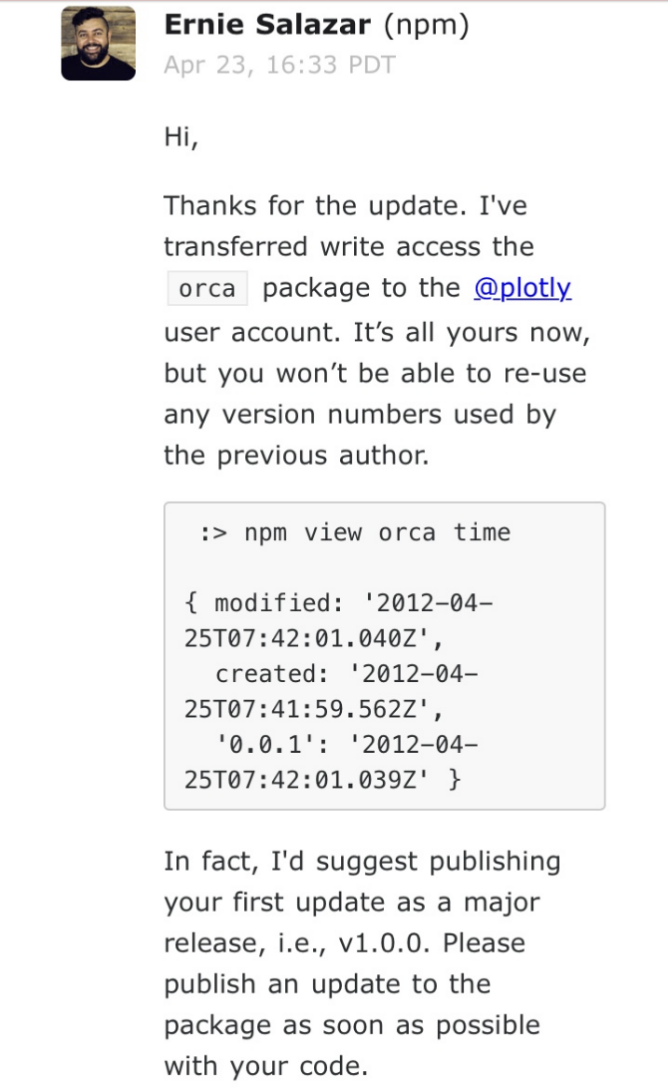-
-
Notifications
You must be signed in to change notification settings - Fork 43
Distributing this thing #21
New issue
Have a question about this project? Sign up for a free GitHub account to open an issue and contact its maintainers and the community.
By clicking “Sign up for GitHub”, you agree to our terms of service and privacy statement. We’ll occasionally send you account related emails.
Already on GitHub? Sign in to your account
Comments
|
(3) would certainly be doable/easiest for R (assuming bundles are relatively small) |
|
Quick thought regarding packing this for python users.
|
I'm all for this as long as we can get to a point where we feel it works in a bulletproof way. Otherwise be prepared for hundreds of plotly.py user complaints/issues on GitHub and the forum 😬 |
|
To note, we only need |
|
I was assuming poppler was needed for PDF export as well. Nice to know that this isn't the case. So poppler could be an optional dependency. I may try out what I outlined above for some internal needs. If I do I'll report back. But, to Jack's point, this would certainly require a bit more thought, and a lot more testing, before promoting it to the plotly.py community. |
|
I tend to favor one way of doing something, over multiple (yes, it's very pythonic of me, ha). So, though my voice is small in these matters, in this case I therefore advise a single vector of local installation. |
|
@JamesCropcho That's certainly reasonable :-) What would be your preferred approach for local installation? Is it currently possible to create standalone binaries? I don't see anything in https://github.com/plotly/image-exporter/releases and I don't know enough about electron to build them myself from the repo. |
|
@jmmease Local installation is actually being figured out and implemented by Plotly and me very actively right now. Hopefully this will be soon possible for Plotly users. |
|
from @jackparmer |
|
Orca sounds nice. |
|
@cpetzold and NPM support very kindly helped us acquire the NPM package name |
|
More things to think about from #78: @n-riesco wrote:
I replied: Augmenting on @n-riesco 's #78 (comment), maybe we could expose that single entry point as I still think a single entry point would be the option that scales the best for this project. So now we have: where the first argument indicates which |
|
... oh and RE #21 (comment), yes we should make our first release |
Okay, I have done so, in #82: https://github.com/plotly/orca/pull/82/files#diff-b9cfc7f2cdf78a7f4b91a753d10865a2 |
|
Orca v1.0.0 is out: Please see the installations instructions here. Our release process is far from perfect, but good enough I'd say to close this issue closed. |
|
It would be useful for my workplace if this was bundled in a python package as we don't currently have a good internal way to distribute anything else like node packages as we are python focused. You can make OS dependent wheel files as other projects do |


On top of the
@plotly/image-exporternpm package , we'll add standalone Mac, Linux and Window binaries to the release section after every release similar to what's done currently in plotly-database-connector.Standalone binaries ship with node.js and electron bundled up, but without the fonts we use on prod (if users want the fonts, they'll have to install them locally or use docker). We'll probably use
electron-packagersame as plotly-database-connector for this task, although there are other options. This part is easy.Now, we need to figure how to distribute
image-exporterto python and R API users. We'll also need to write (thin) python and R wrapper around theplotly-graph-exporterCLI command e.g in python:For distributing, I can think of three different options:
image-exporterstandalone binaries in plotly.py and plotly.R packages and write the wrapper there, similar to what we currently do with the plotly.js bundle for offline. Potential problems, we'll have to make platform-dependent installs - is that possible with pip and CRAN? Download times might increase significantly too.plotly-image-exporterpy/pip and R/CRAN packages from this repo - which would include the py/R wrappers. This option would require platform-specific install too.plotly.pyandplotly.Rand make them spit out errors if called whenplotly-graph-exporterisn't installed.cc @chriddyp @cpsievert @jackparmer
The text was updated successfully, but these errors were encountered: